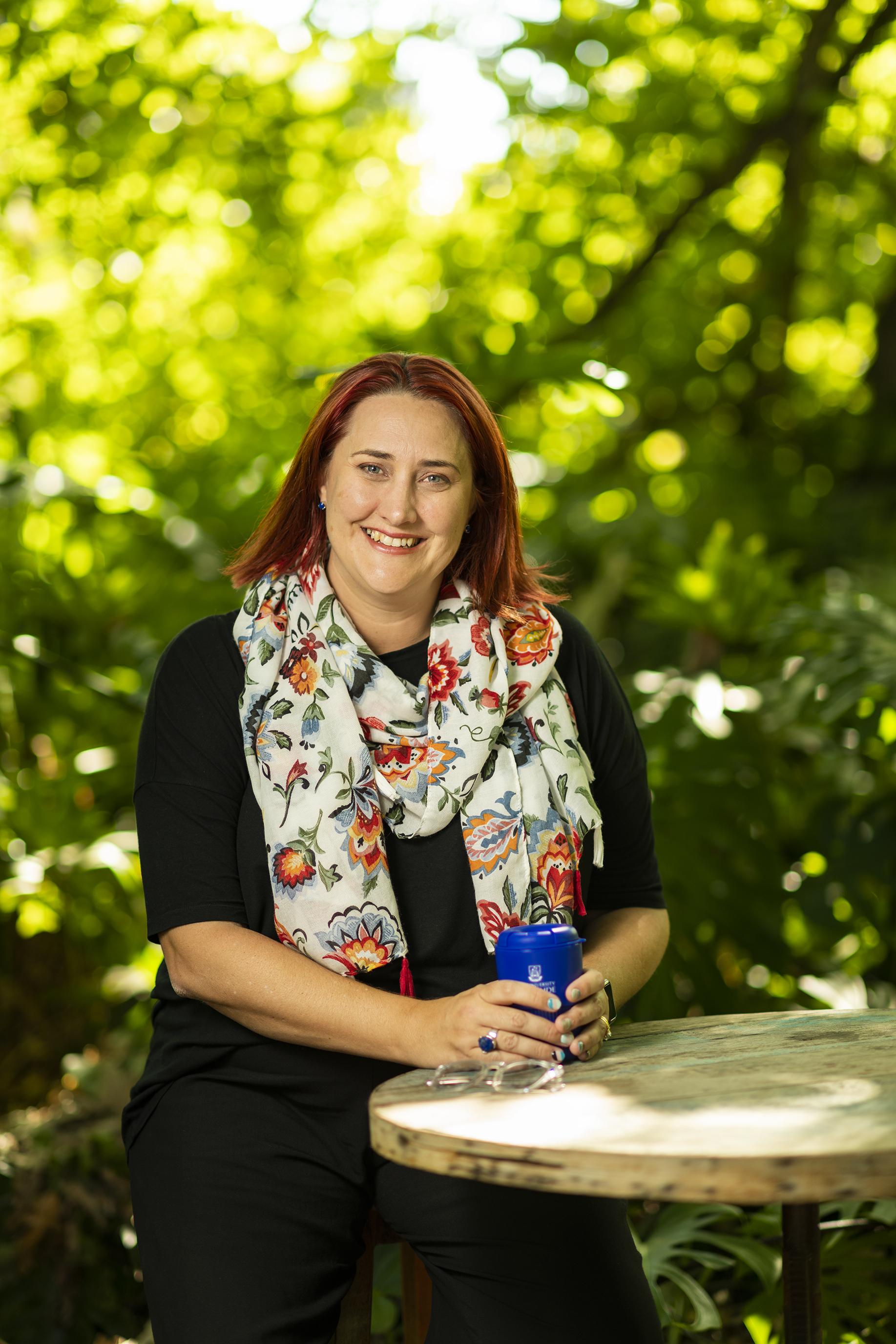Connected Conversations | Emma George
After years of preparation and planning, the University’s School of Allied Health Science and Practice has finally welcomed its first student cohort. Among the excited academics welcoming them is Senior Lecturer in Occupational Therapy, Dr Emma George. Since starting her career 20 years ago, Emma’s work has taken her around the globe and now, she hopes to inspire the next generation of occupational therapists.

Please tell us a little bit about yourself.
My name is Emma George. I completed my occupational therapy degree in 2001. I have worked in community development, mental health, paediatrics, and in the homeless sector. My work has taken me to lots of interesting places around the world—the most northern parts of Central Asia, the fast-paced cities of India, and quiet villages in South East Asia are just a few highlights. At the same time, I am passionate about health equity in Australia and I have learned a lot from Aboriginal people and communities about social determinants of Indigenous health and resilience. I love teaching about tackling the big issues in health, policy and occupational justice. At the end of last year, I was elected as a delegate for OT Australia to the World Federation of Occupational Therapists (WFOT).
I am a Senior Lecturer in Occupational Therapy (OT) at the University of Adelaide. I am passionate about teaching, research and advocacy, where occupational science and the social determinants of health intersect to inform practice and policy. I came to the University at the end of 2019 just as the School of Allied Health Science and Practice was forming. We have been busy preparing the programs for students and I am so excited to be teaching the first cohort of students in 2021.
What has been your journey to get where you are today?
Working as an occupational therapist, and in many interesting and challenging roles, prepared me for research in public health. I wouldn’t describe my time in public health as a deviation because I always think like an OT but public health has enhanced my understanding of health and wellbeing from a population perspective. The challenge for me is to advocate for occupational therapy in extended scope of practice and keeping equity and justice the focus of my work.
What do you love most about working at the University of Adelaide?
There are so many things I love about my job — the people I get to work with, the commitment to excellence, the new ideas, walking along the river for meetings, the coffee, the opportunities for research — but for 2021, I am most excited for teaching and getting to know the first cohort of students in allied health!
What opportunities do you see for the future?
As a new Australian delegate for the World Federation of Occupational Therapists (WFOT), I’m keen to learn more from occupational therapists from near and far about their work and how we can advocate for equity and justice in all that we do. This influences my teaching and research and I hope to bring new ideas and new stories of practice to the next generation of occupational therapists at our university.
What are the top three most defining moments of the past year for you?
2020 was an insanely busy and defining year for me. I am very proud that the occupational therapy program received accreditation, I completed my PhD and I co-coached the Willunga league netball team to a premiership. When I look back, it feels like a bit like a blur, but I am forever grateful to be part of incredible teams at work, in research, and in community sport.

What inspired you to pursue a career in health?
I always wanted to work in health. I confess that when I started occupational therapy, I didn’t really know what it was all about but I fell in love with the creative problem-solving and holistic way that occupational therapists work with people and communities and help people do what they want and need to do.
A career in health can take you in so many directions. I loved my time in clinical work but moved into managing projects and then research. Working in health is rewarding and purposeful. I have been able to pursue a career that aligns with my values for equity and justice, and this is really important to me.
What do you like to do in your spare time?
I’m not sure if I ever really have free time because my life outside of work is so full of sport. When I’m not at work, I’m coaching netball, watching my daughter play netball, or watching my sons play lacrosse and ice hockey. I usually have a coffee in hand and use my time in the car driving all over the state to listen to podcasts – I love OT4lyfe by Sarah Putt, Occupied by Brock Cook, and Full Story by the Guardian.
How do you relax or switch off?
I don’t think I ever switch off. I do spend time on Twitter every day which I find both stimulating and motivating. I learn a lot from @IndigenousX. I am also a member of the Port Adelaide Football Club and I love going to the footy with my family.
Which destination is at the top of your list of places to go when international travel returns to normal?
I have also always wanted to visit Vietnam. It’s the only South East Asian country I have never been to and occupational therapy is new in Vietnam so I’m keen to see what’s happening as the profession grows and how occupational therapists are making a positive contribution to the health and wellbeing of people and communities.
